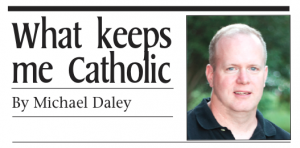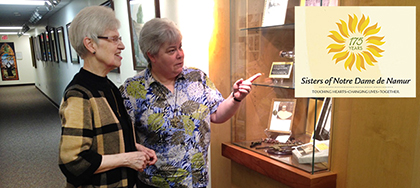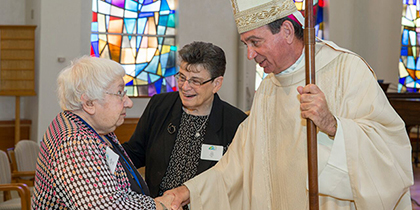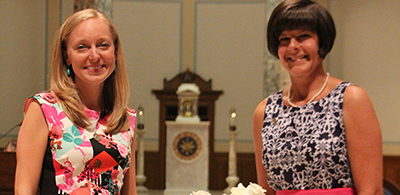What keeps me Catholic? The pope in America
It is officially over. Pope Francis has gone back to the Vatican for a well-deserved rest. Now commentators are left to ask what lasting difference, if any, has his visit had on America.
For me, the lasting effect of Pope Francis’ trip remains a deep and lingering question: Is America truly who it says it is?
In response there are many events to draw upon: his initial stay in Cuba; the Canonization Mass of Junipero Serra in Washington, D.C.; his attendance at a multi-religious service at the 9/11 Memorial and Museum; a stop at Our Lady Queen of Angels School in East Harlem; his address to the United Nations; his visit to the Curran-Fromhold Correctional Facility in Philadelphia; and the concluding Mass of the World Meeting of Families.
In addition to those, I’d like to look at and focus more closely on Pope Francis’ address to the joint meeting of the U.S. Congress. With words that would have been unimaginable but a generation ago, the House of Representatives’ sergeant at arms announced, “Mr. Speaker, the Pope of the Holy See.”
Then, to sustained applause and sincere goodwill, Pope Francis proceeded down the aisle. En route he met and shook hands with Secretary of State John Kerry and walked past Chief Justice John Roberts. Behind Pope Francis at the podium were Vice-President Joe Biden and Speaker of the House John Boehner. All, it is important to note, are “public” Catholics striving to live out their faith in service to America. As evidenced by these persons, Catholics are no longer marginalized politically, but are at the center of America’s continued experiment in democracy.
Pope Francis began on a radically inclusiveness tone offering that the reason he was invited to speak “in the land of the free and home of the brave” is that he too is a son of this one great continent American continent. Rather than distinguish North from South, Francis set a tone of unity.
Though in the presence of politicians, Pope Francis quickly broadened his audience saying he also wanted to speak to the common, everyday worker, the oft forgotten elderly, and the aspirational young people. He then introduced four iconic (and two Catholic) Americans, some better known than others: Abraham Lincoln, Martin Luther King, Dorothy Day, and Thomas Merton.
While commenting on their historical significance and continued relevance, Pope Francis touched upon a number of contentious issues in American society: religious extremism, immigration, poverty and hunger, death penalty, arms trade, environmental deterioration, and fragility of family. Breaking through the current ideological divide and climate of distrust, Pope Francis encouraged all, whatever their belief on important moral and justice matters, to seek the “common good.” He added, “the urgency of these challenges demand that we pool our resources and talents, and resolve to support one another, with respect for our differences and our convictions of conscience.”
Perhaps there is no better adage for America to put into practice, Pope Francis offered, than the Golden Rule: “If we want security, let us give security; if we want life, let us give life; if we want opportunities, let us give opportunities.”
Pope Francis ended by reminding us that “a nation can be considered great when it defends liberty as Lincoln did, when it fosters a culture which enables people to ‘dream’ of full rights for all their brothers and sisters, as Martin Luther King sought to do; when it strives for justice and the cause of the oppressed, as Dorothy Day did by her tireless work, the fruit of a faith which becomes dialogue and sows peace in the contemplative style of Thomas Merton.”
Pope Francis finished by saying, “God bless America!” Yet, I couldn’t help but see that Christ continues to haunt America as well.
What keeps me Catholic? Pope Francis in America calling America to be more fully who we say that we are.
Daley is a freelance writer and teacher at St. Xavier High School.
This What Keeps Me Catholic Column by Michael Daley originally appeared in the November 2015 print edition of The Catholic Telegraph.













